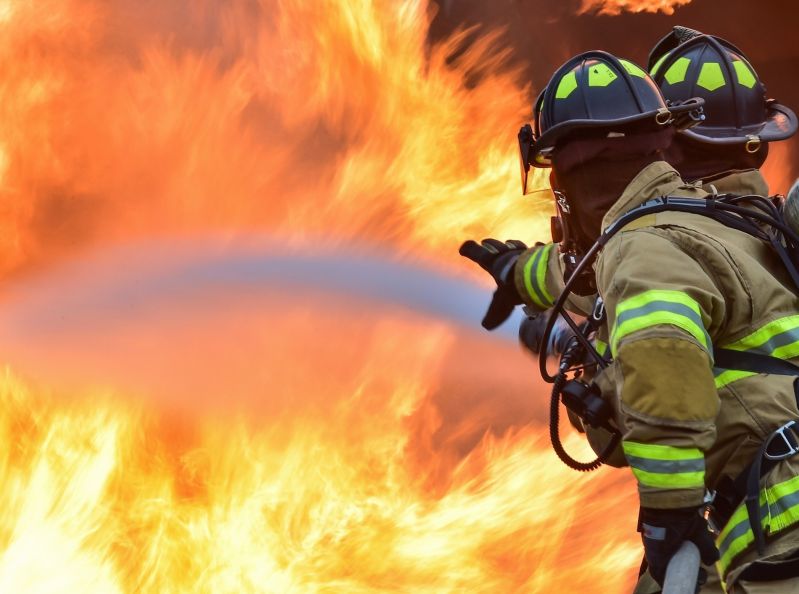


Nearly £4m has been set aside by Government to help address concerns over Jersey’s ability to deal with serious blazes over the next four years.
The funding commitment - which features in the recently published Annex to the Government Plan - is aimed at increasing the number of firefighters, providing more training, and securing extra protective gear.
It comes after the Fire and Rescue Service Association outlined their concerns that "restrictive budgeting" appeared to be "a priority over safety" in Jersey.
They also suggested that the “inevitability” of a similar incident to last month's Bristol tower block tragedy that killed one person and left eight in hospital was drawing “ever nearer" due to more people living in flats.
Following the Bristol inferno, the Jersey FRSA pointed out the limited resources that the Jersey Fire and Rescue has compared to UK counterparts, with at least 27 firefighters required at a high-rise fire to operate safely.
Meanwhile, Jersey only has 11 firefighters on duty and five on-call at any given time – and this is assuming that none of the resources are being used to tackle other incidents on land or sea, or supporting what the FRSA described as an "overrun Ambulance service".
FRSA President Tim Le Cocq explained to Express that the FRSA has "consistently raised concerns with Fire and Rescue Service management, Justice and Home Affairs officers and the Minister for Home Affairs, regarding the capacity and capability of the Service to ensure the safety of firefighters and the public alike" over a number of years to no avail.
A £15,000 Peer Review of the Service was conducted earlier this year, which Mr Le Cocq claimed contains conclusions which "validate our repeated concerns on capacity, capability and resilience."
It was commissioned by Chief Fire Officer Paul Brown in January 2022, with desktop research undertaken in March, a three-day on-site visit in April and the final report being presented to the previous Home Affairs Minister in May.
The results of the review, which was presented to Deputy Helen Miles following her election in summer, are yet to be made public.

Pictured: "We do not expect the real cost to be the lives of firefighters or the public we serve," Mr Le Cocq said last month.
Home Affairs Minister, Deputy Miles responded to the FRSA's concerns in a statement that said one of her "key priorities" is ensuring that "frontline services are appropriately funded so that they can operate effectively and efficiently". She also said that the results of a £15,000 Peer Review of the service conducted earlier this year will be published "before the end of October”.
That pledge has now been backed with cash.
A recently published Annex to the Government Plan shows with £3.9m to be invested in the Fire and Rescue Services by 2026.
The Annex document explained that the "professional standards" for the Fire Service have "expanded, changed and advanced" over recent years, "particularly in the ‘post Grenfell’ context".

Pictured: Deputy Helen Miles, the new Home Affairs Minister.
The £3.9m investment plans to "enable real improvement in public and firefighter safety in the short to medium term and will provide the foundations for longer term strategic work to address the complex and evolving risk environment".
The Annex specifies plans to fund an increase in the number of firefighters at various ranks and in various roles, as well as an associated increase in training and protective clothing and equipment provision in order to specifically improve response to high-rise incidents.
Comments
Comments on this story express the views of the commentator only, not Bailiwick Publishing. We are unable to guarantee the accuracy of any of those comments.